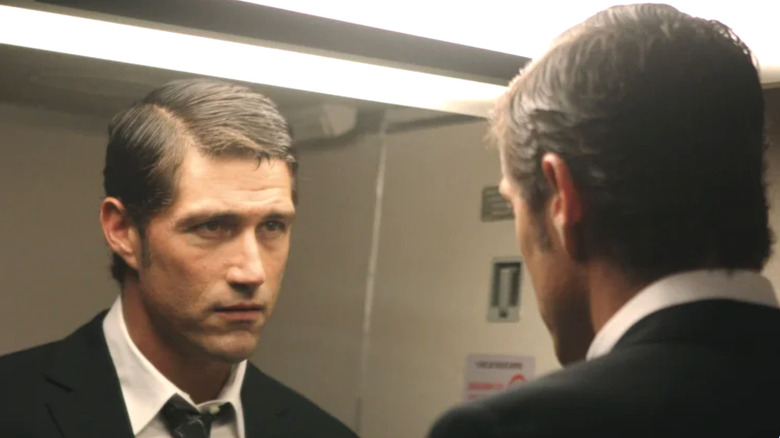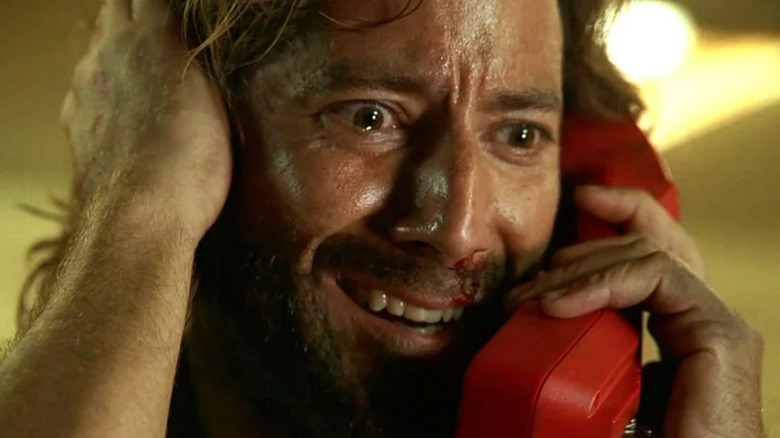A Beloved But Underrated Sci-Fi Show Is Responsible For Lost's Structure
Just as "Lost" had a major influence on so many of the shows that would come after it, "Lost" itself only exists because of other groundbreaking TV shows from previous years. The most obvious influence is "Twin Peaks," a mystery show from the early '90s that embraced its weirdest aspects to the delight (and frustration) of fans everywhere.
Perhaps the biggest influence, however, was the '90s TV series "Babylon 5," which aired on the PTEN network (later turned into TNT) starting in 1993. "Babylon 5," sadly, has not maintained the same lingering cultural prominence that "Twin Peaks" has going for it, but by the early 2000s, it was certainly still fresh in "Lost" showrunner Damon Lindelof's mind. In a 2016 interview with Lightspeed Magazine, "Babylon" creator J. Michael Straczynski explained how Lindelof explicitly looked to "Babylon 5" when creating "Lost."
"When Damon Lindelof came on to develop 'Lost,' he said straight up to me, 'We want to pattern this after the five-year arc you have in 'Babylon 5,'" Straczynski said. He noted that after "Babylon 5" wrapped up, long-term arcs had started to become the new thing that everyone in Hollywood wanted to pull off: "I had a meeting at a network a couple years ago where I was talking about a show I wanted to do with the five-year arc and the main guy in the room said, 'Look, we have people coming in all the time saying 'we want to do a five-year arc.' They can never pull it off successfully; what makes you think you can do it?' I invented it, alright?"
Did 'Lost' pull off its multi-season arc?
As the hardcore "Lost" fans already know, the long-term plan around the show was always pretty messy. The show was constantly improvising on the fly, sometimes due to sudden cast departures and sometimes due to network interference. Their early plans were for more of a 3-season arc, not a 5-season one, but in some ways "Lost" was a victim of its own success; while "Babylon 5" was reasonably popular as far as sci-fi shows went, "Lost" was a full-on mainstream phenomenon from day one. ABC wanted to drag their lucrative show out for up to ten seasons, and ultimately, the writers and execs came to a 6-season compromise.
But despite how messy the "Lost" production was, it did a commendable job keeping a continuous story going coherently for years at a time. The show has so many ongoing storylines that eventually connect in fun, satisfying ways; my favorite's probably when we find out that John Locke's evil con-man dad is the same guy who conned (and indirectly killed) Sawyer's parents. It was a reveal that had been slowly set up for three seasons straight, culminating in one of the best episodes of the entire show. Was the reveal planned from the start, or did the writers stumble upon it in the moment? In the end, it doesn't matter; it was thrilling television either way.
The most impressive section of "Lost" is that period from the second half of season 3 (after ABC agreed to a season 6 end date) to the end of season 5 (where they wrapped up the '70s Dharma plot). This was the show at its most convoluted and fast-paced, and it's amazing how long they managed to keep the streak going before they ran out of steam. Say what you will about season 6 of "Lost," but those two and a half seasons before it would surely do the "Babylon 5" writers proud.

